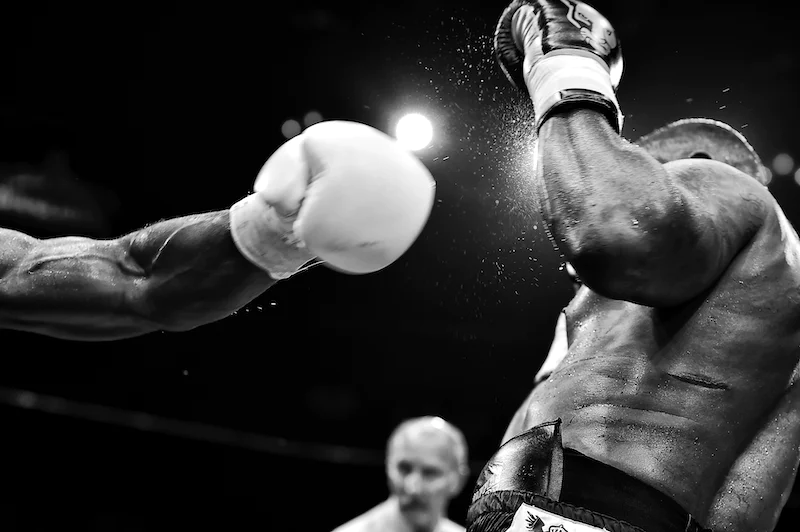
There goes a saying: A man is rewarded in public for what he does in private.
Don’t be a perfectionist. Don’t make it a mandatory requirement to win every single fight, game, race or competition that you enter. Rather, go in with the mentality of learning to better yourself by either exceeding your existing limitations or better positioning yourself to do so.
90% of your time should be spent on training and practice, so you need to see it for what it is. Training is about skill development, not about winning or losing. You don’t need to win every battle. You only need to win the ones that count. The battles that count are the ones that grow your long-term wealth, health, and legacy. It’s winning the state championship high school basketball game, or the Boston Marathon, or the World Championship finals in whatever sport you play. Think about that win because that’s the one you will be remembered for. You are not going to be remembered for the fight you lost on Monday afternoon at 2 pm in some nameless underground gym with some guy from the street that no one knows about. These are commonplace everyday performances that no one will remember you for, but people will remember you for those peak performances. Focus your everyday performances on skill development so that you can focus your peak performances on winning.
When you are participating in any sort of competitive training with people at a similar skill level, you should always go in with an open mind and be okay with losing to them. View training as a form of experimentation: You are testing your physical capabilities, mental functions, instincts, and willpower against a multitude of different scenarios to discover weaknesses and improve upon them. Therefore, effective training entails inevitable failures and lots of it, because how can you expect to discover your weaknesses through consistently winning?
Yes, others will talk smack and laugh at you when you lose, particularly those who are not as good as you. Ignore them. These same people who are the quickest to judge you are also the ones who will never take a single meaningful risk in their lives because they are too afraid of failure. If they happen to be your opponents, you will have the opportunity to defeat them later on when the lights come on for the real event. They will be complacent, but through this simple loss, and the next, and the next, you will grow stronger and ready.
A great extension of this approach to training is Handicap Training. This is where you hamstring yourself in one or more of the necessary capabilities in your respective sport or competitive activity. If you are a highly ranked competitive cross-country runner about to participate in an unofficial 10-mile race against a competitor ranked over 100 places behind you, perhaps you could give him a two-minute head start. If you are a 6’10” high school basketball player playing a one-on-one game against a 6’6” guy, you could limit yourself to only scoring from ten or more feet away from the basket. If you are an experienced rock climber going up against an intermediate competitor at your local indoor YMCA wall, you can handicap yourself by climbing using only your hands (for a real-life example check out this video).
For anyone out there who does Brazilian Jiu-Jitsu, a great example of this is Gary Tonon. Gary is famous for putting himself into impossible situations in training (i.e. keeping his arms behind his back) and trying to work his way out from there. 6-8 times out of 10 he is able to come out and win in spite of the handicap, but the other 2-4 times he fails. He willingly trains under significant handicaps against many nameless white belts, often losing to them. He has lost to them in training so many times that you literally have hundreds of white belts walking the streets of New Jersey bragging about how they tapped Gary Tonon. Their logic: “I tapped Gary Tonon. He is one of the best in the world so therefore I am one of the best in the world.” Do you think Gary gets bothered by this? Of course not, because Gary uses these experiences solely for the purpose of training himself and getting better. He knows that when it counts in front of thousands of people and bright stadium lights, he’s going to be going at it 110% with a set of skills that only a handful of people on Earth can match. In that situation, he will feel no panic or fear because he will be replicating something that he has done thousands of times before while handicapped.
Of course, handicap training will be a huge test on your ego as you will lose in many situations you could otherwise confidently win. Practically all men possess in them the “ape reflex” in which they want to continually project dominance. Successful handicap training goes completely against this and will inevitably place you into many situations in which you get laughed at by a bunch of novices way below your level. Yes, it won’t feel pleasant but it won’t be even remotely close in difficulty to any real challenges you will overcome later on. Remember these moments, embrace them and use them as fuel and motivation to become even stronger.
And one more thing: Whether you are a student, businessman, soldier, athlete, or bricklayer, you must learn to see through the illusion of competition. This means identifying competition in terms of its normalcy. This is what the best athletes can do but most others can’t. They see training as a normal day-to-day activity and competition as the exception. This is both understandable and rational: When you go to a big competition, there’s usually always a large crowd making a ton of noise. The promoters of these competitions go out of their way to emphasize this. Think about the last time you went to a sporting event. What do you remember about it? Is it just the actual match and the skill level of the competitors? No, of course not. You remember the music, the pomp, the spectacles, etc. You see what the event organizers are trying to do? They are trying to create drama and pageantry when in fact it’s just a basketball game or boxing match. The reality, however, is that it’s just two athletes or teams, the referees, and a rule set. But what they are trying to do is sell you something which is bigger and different: An illusion, not reality. This is reinforced with pageantry and unrelated theatrics so that a basketball game or boxing match becomes a basketball or boxing performance.
You are now probably wondering: “Yes, that’s true, but what point are you trying to get at?” What we are trying to say here is very simple: Ignore the illusion and zero-in on the reality. The next time you go to a competition as a competitor remember that there is only a single reality: You, him, and the referee reinforcing a rule set. That’s it. Everything else you see and experience- the noise, the smoke, the loud music, and the cheerleaders- are nothing more than illusions that are put there by design to make you feel a particular way. Otherwise, it’s the exact same thing you do every single day when you train in that nameless neighborhood gym, the only difference being that this time you are going against a guy or a team you have never competed against. Remember that and you will succeed.
